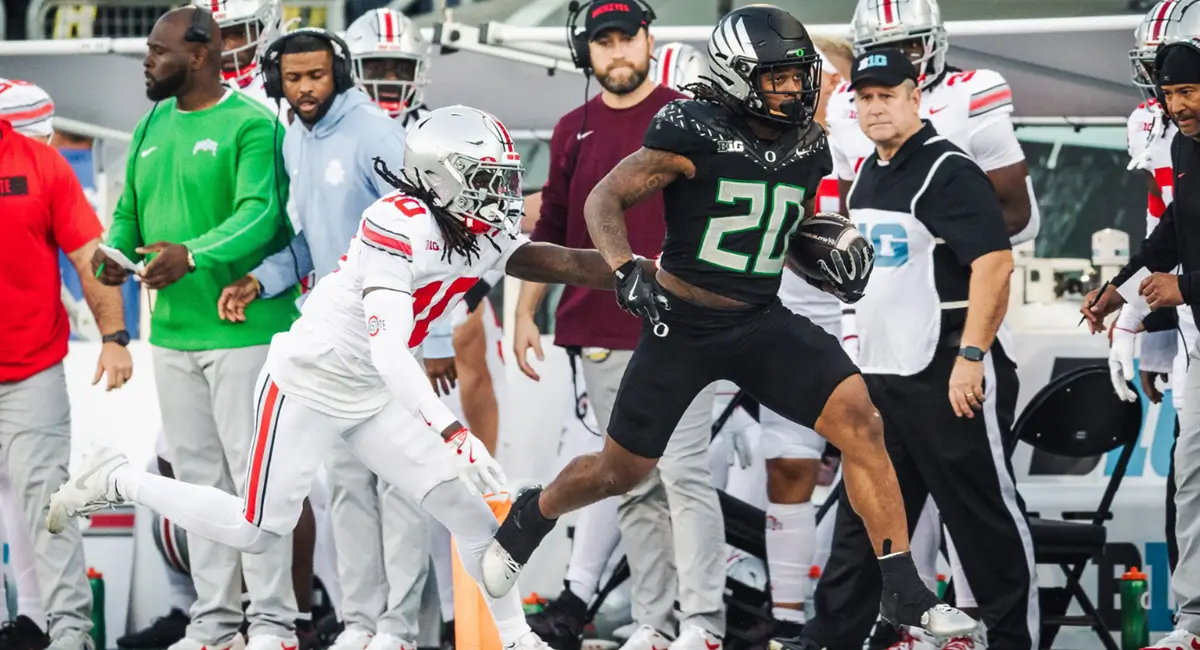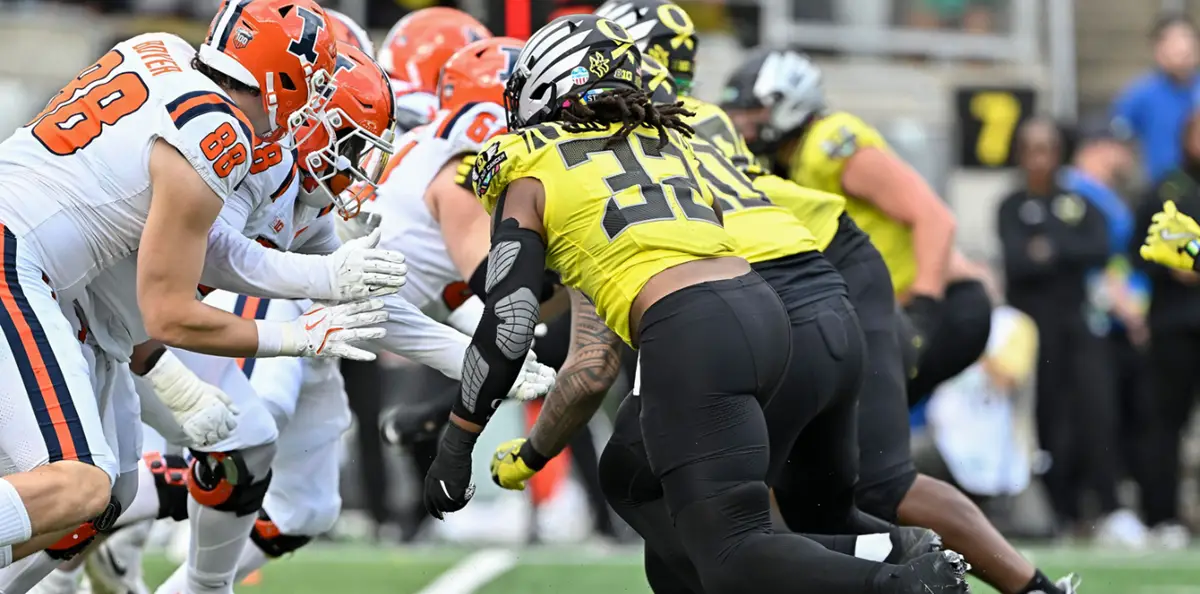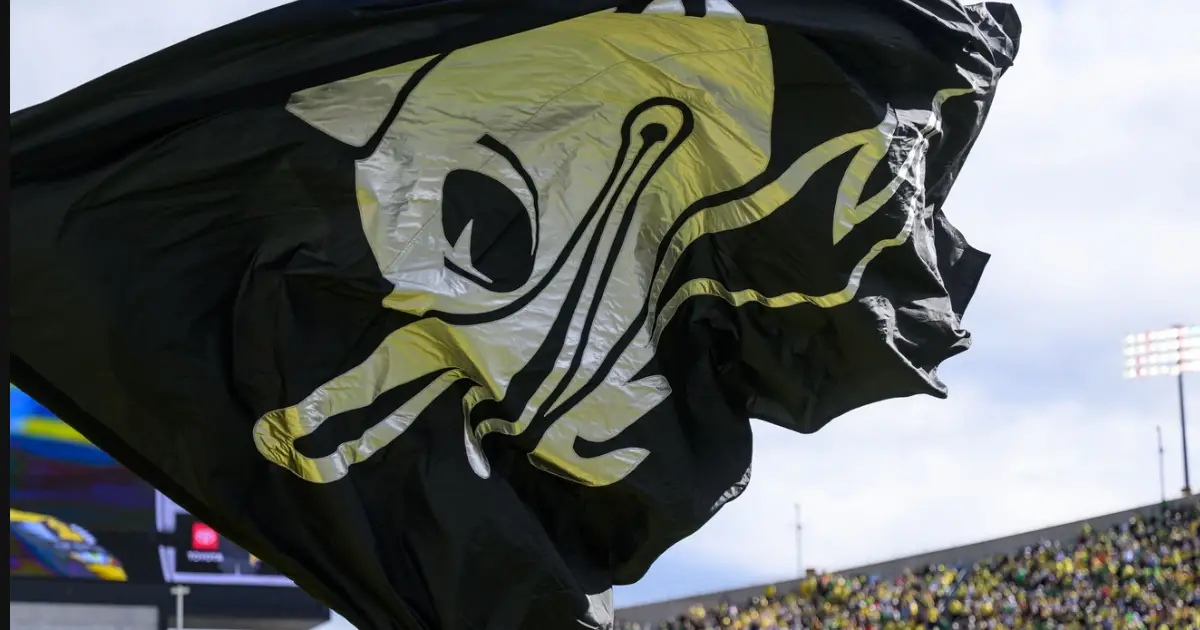In any sort of competitive gaming, whether it is sports, cards, board games or even video games, there is something that is created by their respective participants: the metagame, or “meta” for short. This is the game within the game that, over time, determines the best way of playing.
The reality is that there isn’t just one definitive answer to any game, but when it comes to football there is a reason the predominant playing style is “pro style.” That’s what the highest level of football has determined is the best way to play the game. What makes college football so fun is that there are so many teams, and historically the geographic conferences themselves have created many metas of football. Not all were created equal, and some styles of play are outright worse than others.
The old Pac-12 had perhaps the strangest metagame in all of college football, and because of that it was probably one of the most difficult conferences to navigate on a yearly basis.
This isn’t to say that the top Pac-12 teams were the best in the country, as that clearly hasn’t been the case for a very long time. But the diversity in play from the west coast conference kept things interesting from week to week while creating the real sense that a slipup could have catastrophic post-season implications.
And they mostly did, as the Pac-12 frequently cannibalized itself — thus eliminating themselves from the four-team playoff.
The B1G, on the other hand, is rather static in its meta.
B1G football is a well known brand of football that, to former Pac-12 fans, feels like it is stuck in the dark ages of football. It feels like most teams are playing some variation of the same style of game — a modernized take on the pro-style offense. Looking at Oregon’s B1G schedule to date, the offenses of Michigan State, Purdue, Illinois and even UCLA look rather similar.
Ohio State is a bit of an outlier, as they are rather pass-happy.

Jordan James out rushed Ohio State’s runningback duo on the way to an Oregon victory.
(Photo by: Steven Chan)
But all the other teams Oregon has played to date, and including Oregon’s opponent this weekend of Michigan, all look rather similar in how they’re built.
This isn’t to say that B1G teams are bad; in fact the B1G has been far more successful at the top of the conference than anything the Pac-12 can claim for over a decade (though it is perhaps a simpler meta for the top teams to navigate). This is much easier for Dan Lanning and the Oregon Ducks to prepare for on a week-to-week basis than the old Pac-12.
In the Pac-12, the Ducks could go from playing in Pullman, Eastern Washington, against an air raid offense to the desert against a run-heavy Arizona team, and then the week after be back home in Eugene for a showdown against an old-school style smash-mouth Stanford team in the rain.
Not only was the style of play in the Pac-12 incredibly diverse, so was the climate.
By contrast, the B1G’s climate is rather similar throughout. The Midwest is going to get cold and may bring some snow during games, but that holds true throughout the vast majority of the conference. The west coast teams will need to learn to cope with that new environment, but the adjustment period will be rather short.
The Pacific Northwest teams of Oregon and Washington may be strange for B1G foes with our cool weather at times and massive downpours of rain into November. Though not impossible to overcome, the frequency any of the heartland B1G teams will have to deal with the Pacific Northwest will be low.
Oregon is Built to Compete at the Highest Level
The B1G actually works in favor of what Lanning is building. National Champions have all used a similar formula to win it all over the years, and the style of play in the B1G encourages that formula. The B1G likes the power run game and playing defense designed to stop that style of play. It’s what Michigan has done the past three years and how they managed to win a National Championship in 2023.

Strong line play is essential to football but even more so in the B1G.
(Photo by: Craig Strobeck)
Last year the Ducks tripped up twice against Washington. Washington was playing a pass-heavy scheme and Kalen DeBoer sprinkled in more of a run game to take advantage of teams. Oregon focused more on pass defense. DeBeor was able to attack Oregon’s weaknesses by playing off-meta. It worked, but by the time Washington needed to win against a truly elite defense, their brand of football couldn’t compete.
Lanning’s Oregon is built to compete in the B1G or SEC, and not the wacky Pac-12. Lanning and the Ducks must stay vigilant because every week brings new challenges, but this year it feels like many of the challenges are similar in nature.
This week’s game plan is basically the same as last week’s game plan. Build an offensive lead early and stop the run. The Wolverines are just like the Fighting Illini; they depend on their run game to set up their offense to score on long drives. Neither team is built to play from behind.
That’s the B1G metagame. Expect Lanning to continue to exploit it.
David Marsh
Portland, Oregon
Top Photo By Craig Strobeck

Natalie Liebhaber, the FishDuck.com Volunteer Editor for this article, works in technology in SLC, Utah.
Share your thoughts about this team in the only free, “polite and respectful” Oregon Sports message board, the Our Beloved Ducks forum!
Related Articles:
Ducks Football 2026: Breaking Down Strengths And Weaknesses
These Ducks Will Have Monster Second Seasons as Starters
Oregon Football: Early 2026 Ranking Projections
FishDuck Foaming Over Upside of 2026 Diamond Ducks
Unbelievable...Same SEC Stuff, Different Day
Why Oregon Football Always Belongs in the National Conversation

David Marsh is a high school social studies teacher in Portland, Oregon. As a teacher he is known for telling puns to his students who sometimes laugh out of sympathy, and being both eccentric about history and the Ducks.
David graduated from the University of Oregon in 2012 with Majors in: Medieval Studies, Religious Studies, and Geography. David began following Ducks Football after being in a car accident in 2012; finding football something new and exciting to learn about during this difficult time in his life. Now, he cannot see life without Oregon football.

